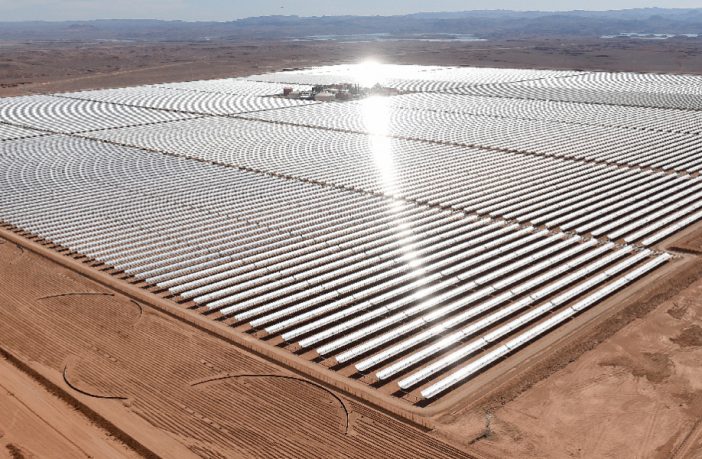- The International Energy Agency (IEA) has released the latest review of Morocco’s energy policies, welcoming the institutional, legal and fiscal reforms undertaken to promote the sustainable development of the country’s energy sector.
- The Moroccan government is pursuing power sector reform, creating a national electricity regulatory authority.
- The country is also developing new interconnections with Spain and Portugal, and planning to boost power trading and integrate its electricity market regionally.
- Morocco has the largest solar thermal station next to Ouarzazate, the Noor Power Station will soon spread over 30 km2, with the aim of bringing 2000 megawatts (MW) by 2020
The report was presented in Rabat by Dr Fatih Birol, the International Energy Agency’s Executive Director, in the presence of Morocco’s Minister of Energy, Aziz Rabbah.
The report is the IEA’s second in-depth review of Morocco’s policies after a first edition was published in 2014. Morocco joined the IEA Family as an Association country in 2016.
Since the last review, the IEA noted the government’s positive efforts to boost renewable investment, provide access to electricity, and phase out of subsidies for fossil fuel consumption. With the exception of bottled butane, fuel prices are now linked to the international market.
Morocco is pursuing an ambitious energy transition pathway. But reductions in greenhouse gas emissions by 2030, in line with the country’s commitments to the Paris Agreement, will require the scaling up of private and public investments, the IEA said.
The IEA’s review provides detailed recommendations to maintain the momentum for reform and increase ambitions for the country’s energy transition. It notes that Morocco has ample opportunities for efficiency improvements and more renewables deployment. For now, the country still relies on oil, gas and coal imports for 90% of its energy needs. In power generation, coal accounts for 54%.
In this context, the IEA welcomes the government’s renewed focus on energy efficiency, through the National Energy Efficiency Strategy and related action plans, for instance. Public procurement is an important driver for the deployment of cost-effective energy efficiency services and technologies. Morocco also refurbished its coal-fired power generation fleet with efficiency upgrades to ultra-supercritical technology. Providing adequate funding for energy efficiency programmes, and coordinating them across government agencies, is also critical.
The world’s largest concentrating solar park at Ouarzazate illustrates Morocco’s ambition and technological capability. To develop the country’s large renewables resources, the government is pursuing power sector reform, creating a national electricity regulatory authority, developing new interconnections with Spain and Portugal, and planning to boost power trading and integrate its electricity market regionally.
“I am very pleased to count Morocco as a member of the IEA Family,” said Dr Birol. “It was the first country in the Middle East and North Africa to join us. Morocco’s success in moving towards universal access and phasing out fossil fuel subsidies is a role model for many countries, making it an ideal partner to host regional training and capacity building programmes that help to improve energy policy making across Africa.”
Minister Rabbah and Dr Birol agreed to increase the collaboration between Morocco and the IEA, including through new training activities on energy efficiency policies and data gathering for a wider group of African countries.
Author: GBA News Desk/ESI-Africa Contributor
This article was originally published on ESI Africa and is republished with permission with minor editorial changes.















